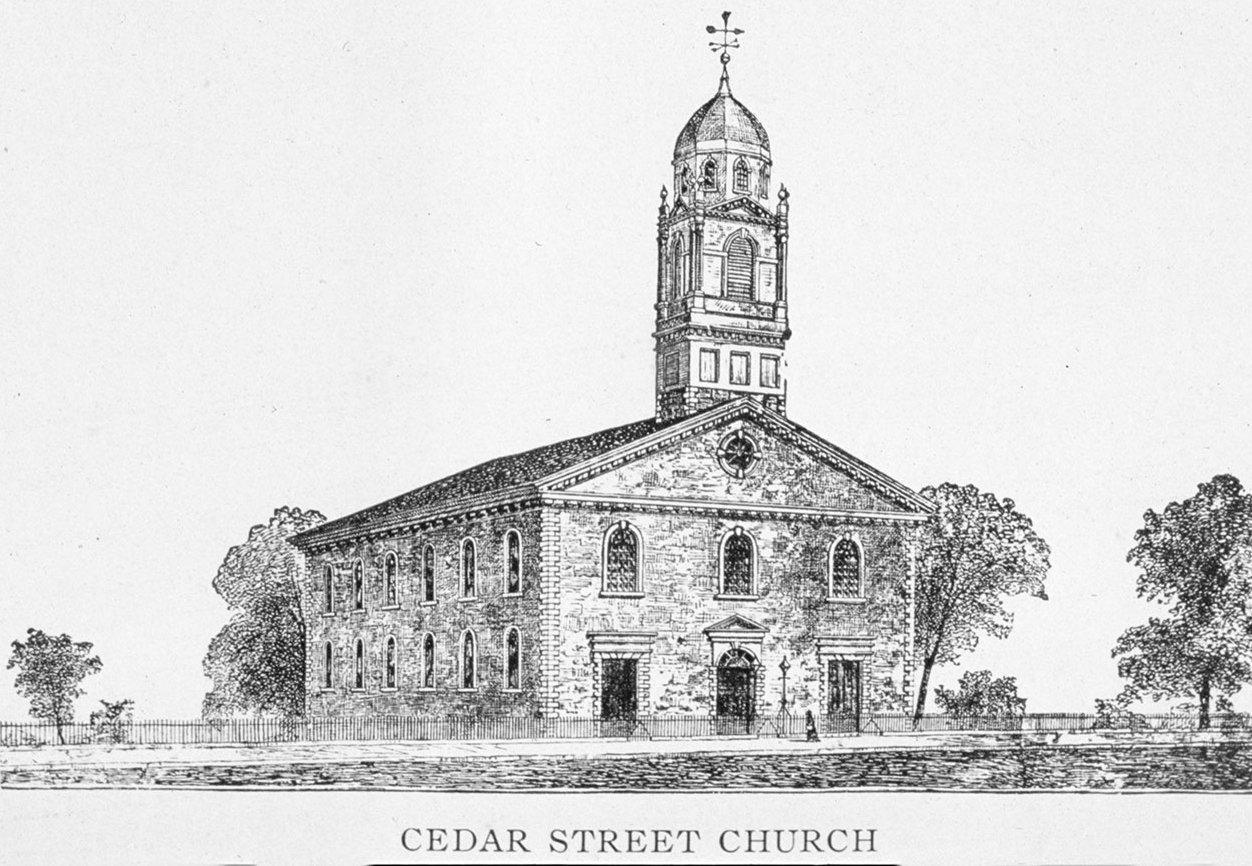History · May 19, 2022
A Humble Start
"We didn’t want to rewrite history, but we do want to promote a greater awareness of the circumstances of the time." — Erica Moffett, Clerk of Session

May 19, 2022
The Session and Board of Trustees of Fifth Avenue Presbyterian Church have unanimously endorsed a slate of recommendations that will begin to redress the church’s history with slavery. A task force led by Clerk of Session Erica Moffett was charged with guiding the church’s response to revelations that our founding pastor, the Rev. Dr. John Brodhead Romeyn, was a slaveholder who later repudiated the institution of slavery.
After two months of historical study, frank discussions and prayerful discernment, the task force recommended that:
- The Romeyn Room on the fifth floor keep its name and the portrait of Dr. Romeyn, and that the adjacent Board Room be renamed the Betsey Jackson Board Room. Jackson was Dr. Romeyn’s household slave and a charter member of this congregation in 1808. She was manumitted (freed) by the Romeyn family in 1811.
- The Arts & Our Faith Committee commission an artist to create a portrait of Jackson that will hang in the Board Room.
- Educational plaques be installed next to the portraits of Dr. Romeyn and Jackson. Elder Kathy Henderson will be asked to draft the historical text for these plaques.
- A new task force be created to produce a proposal for a museum-quality exhibit of Fifth Avenue Presbyterian Church history, to be housed in Jones Auditorium, that can grow and change with the congregation over time.
“We didn’t want to rewrite history,” Erica says, “but we do want to promote a greater awareness of the circumstances of the time. To rename the Board Room the Betsey Jackson Room is to give this once-enslaved woman of faith a presence—you might even say a voice—as one of the founders of this church. In a way, over 200 years later, she will help us have conversations we need to have.”
Task force member Dale Hansen, church archivist, was an essential part of the team’s fact-finding. He observes that the task force did not focus on trying to wring shame from the church’s past, but on creating an open, transparent process. “We are all God’s children, regardless of race or gender,” he says, “and to the extent that leaders in our church did not treat some as equals in the eyes of God, we should seek to make amends and do better.”
Elder Eric Daniels says he approached his work on the task force through the lens of faith and race. “My paternal great-grandparents were born slaves in the 1850s in Virginia. My grandmother was born to slave parents. If, as Christians, we intend to show forth the kingdom of God, we must acknowledge with honesty a past that includes failings, biases and sins.”
Nancy Moore, chair of the Arts & Our Faith Committee, and Senior Pastor Scott Black Johnston also were members of the task force.
“This work is a humble first step,” Scott says. “In approving these recommendations, one of our Trustees asked, ‘How can we be motivated by this story to change the world today?’ This is the right question. More challenging and, I pray, grace-filled conversations lie before us.”